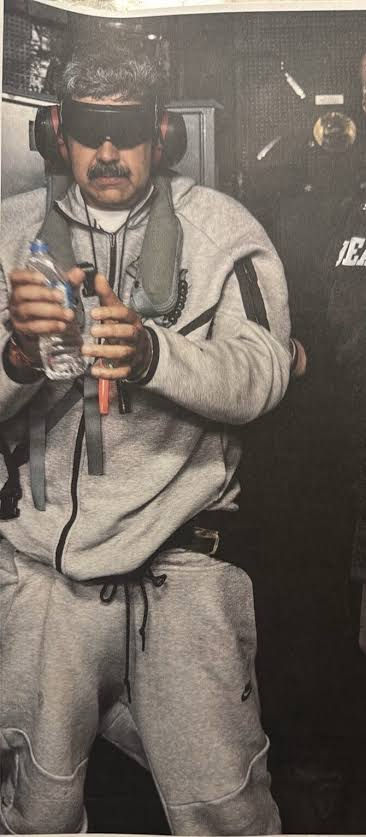
The nuclear threat of Russia
- Sebastian Palacios.

- Apr 1, 2022
- 2 min read
Updated: Apr 7, 2022
This week several Russian officials close to Putin have put on the table the use of nuclear bombs in case Russia should face an 'existential threat'. The danger of these declarations is that they have been accompanied by lies about what is happening in Ukraine, and the fact that the United States and Russia no longer have some treaties that limit the nuclear capacity of both countries. In December 2001, three months after the 9/11 attacks, George W. Bush told Putin that the United States was withdrawing from the Anti-Ballistic Missile Treaty (ABM), which had been in force since 1972. This treaty limited the defensive capacity of both sides against the launch of nuclear missiles. Thus, neither side could 'wrongly considerer itself more prepared than the other to launch a first nuclear strike and then immediately neutralize the other side's response'. Bush's argument was that the new "War on Terror" required the United States to protect itself against eventual attacks by 'hostile' countries that were supporting Islamic terrorism, namely Iran and Iraq. Putin reacted to this by ordering the increase of Russia's nuclear arsenal. Additionally, Trump broke the Intermediate-Range Nuclear Forces Treaty (INF) in 2019 that was operating since 1987. According to the United States, Russia was no longer respecting it. Obama already accused Russia in 2014 of constantly testing ground-based nuclear missiles, but the European Union, which feared a new arms race, pressured Obama not to withdraw from this treaty that prohibited all ground-based ballistic missiles from both parts with ranges from 500 to 5500 km. These missiles were designed to attack rival targets without risking mutual assured destruction. INF thus limited the range of directions that a nuclear missile could take and protected allied countries of these powers from a nuclear attack. In the first phone call with Putin after being elected president, Trump mentioned that the United States was considering withdrawing from New START, a treaty enacted and signed by Obama and then-Russian President Medvedev in 2010. This treaty restricted the number of nuclear warheads to 1,550 in active mode for both parties. Trump argued that this "had been one of Obama's many bad deals in foreign policy" and the treaty almost broke several times during the Trump presidency until Biden finally ratified it in 2021. In recent years, both Russia and the United States have increased their nuclear capabilities and defense mechanisms without the transparency of previous years, so there is a risk that one party, especially Russia, believes that it can launch a nuclear first strike and trust that its defense system will block a response from NATO. There is also the suspicion that Russia will launch a nuclear attack in Ukraine stating that the government in kyiv is about to get the nuclear bomb and this is an existential threat to the Russians. Here the Russian Ambassador to the UN talks about the nuclear threat at the same time that he bluntly says that it is the Ukrainian army that is bombing the cities of Ukraine.




Comments